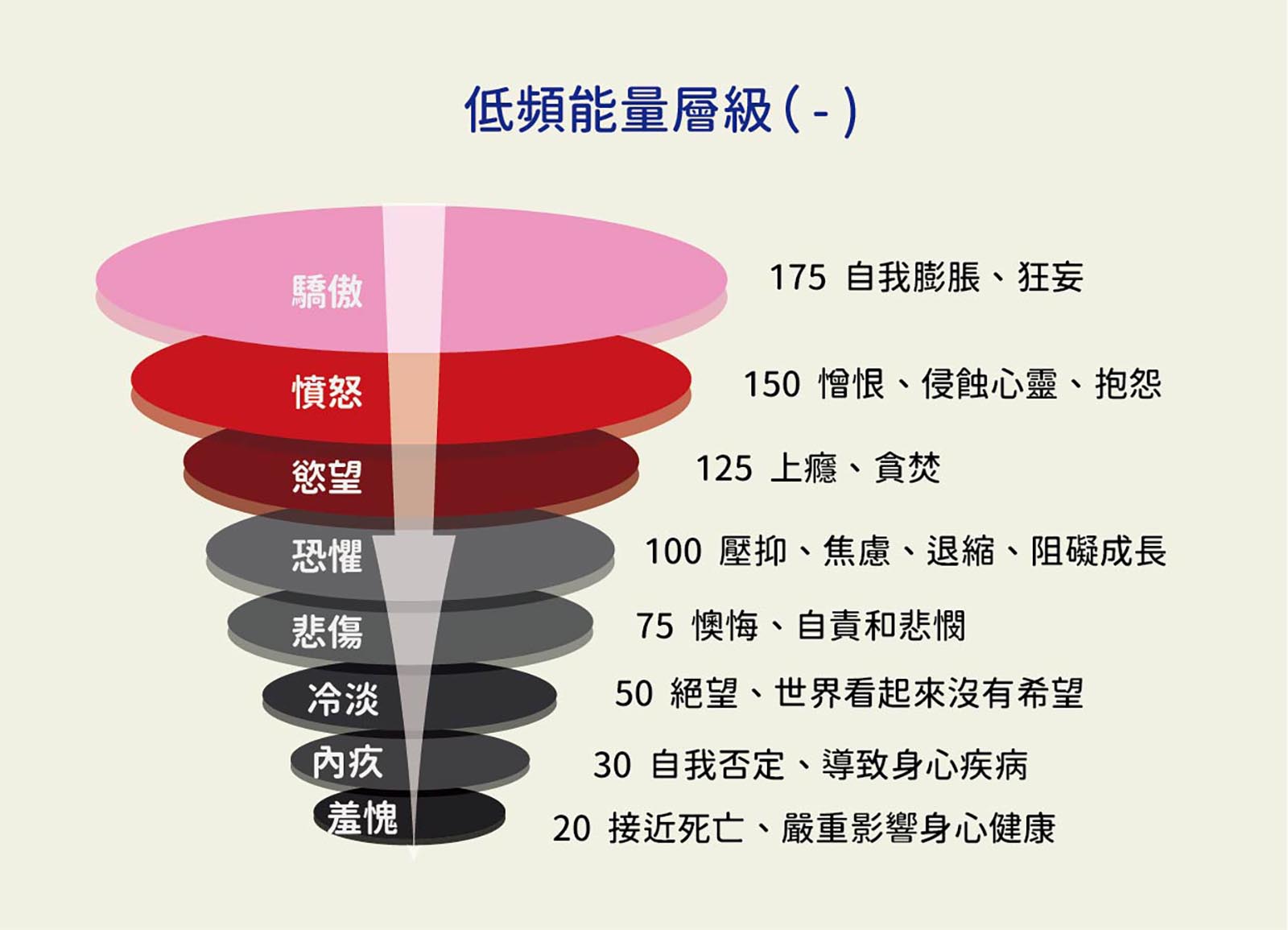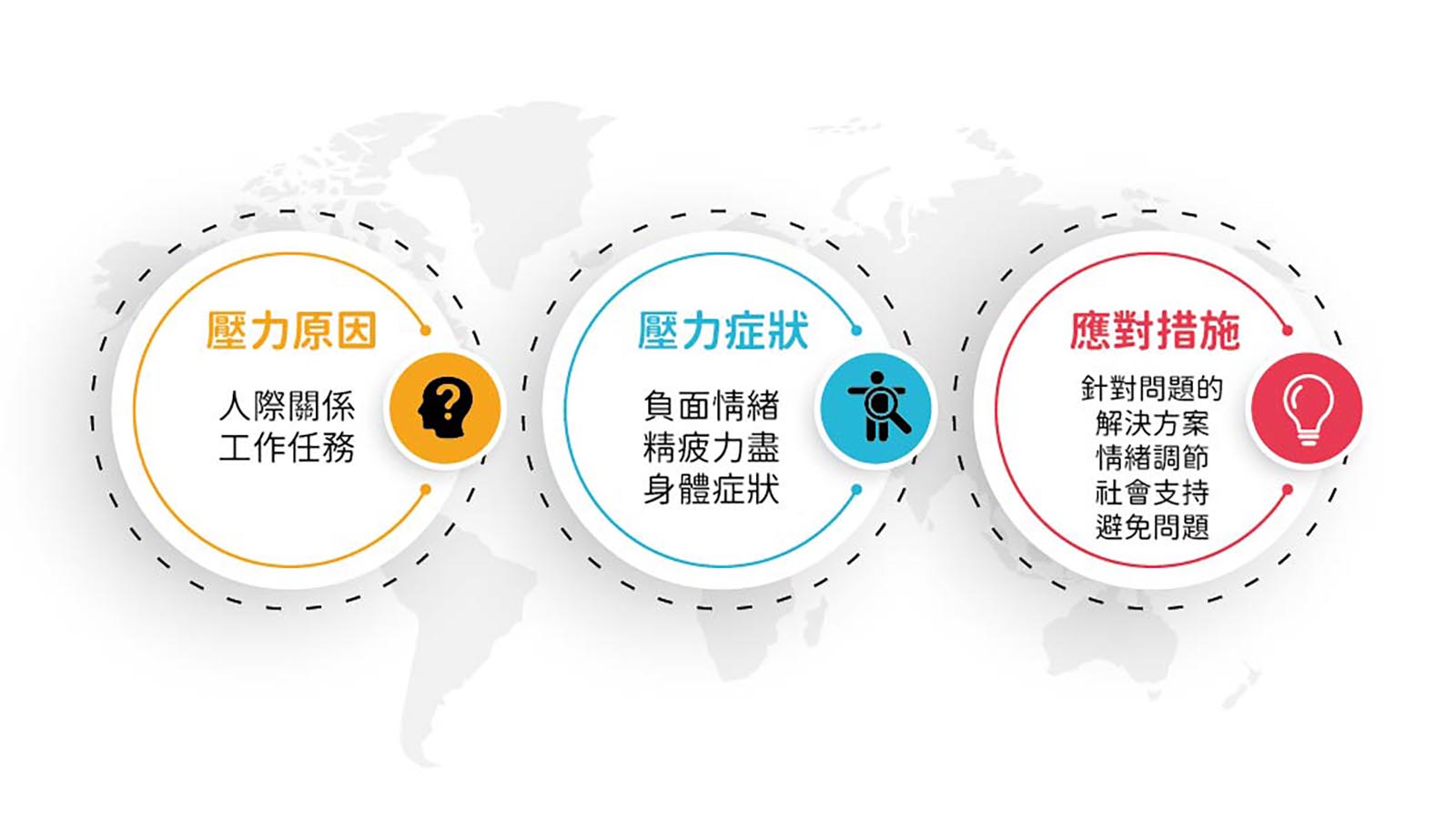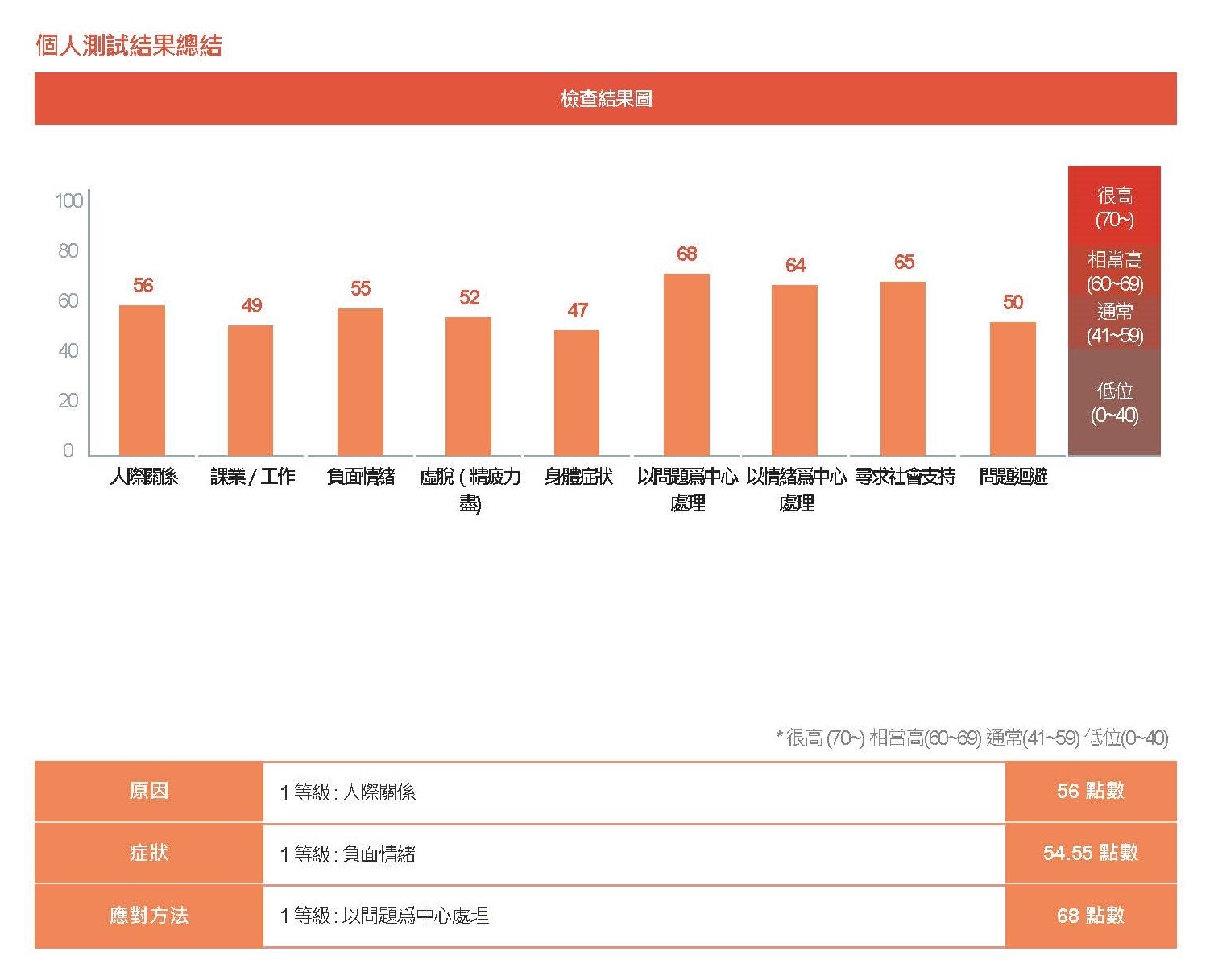Stress Analysis Report
Applicable targets: Adolescents, Adults
Evaluation: 90 questions
Stress is not resistance, but also a boost to growth!
Stress goes both ways, and positive stress builds self-efficacy and self-regulation, and stimulates motivation, inspiration, and vitality in life.
Conversely, the negative effects of stress appear in a variety of ways. Effects resulting from stress can be long term depending on the state of mind, leading to physical disorders. Emotional stress can lead to psychological anxiety and mood abnormalities. Prolong period of stress may result in negative effect of cognitively irrational beliefs, which can lead to helplessness and loss of meaning in everyday life.

The right amount of stress will promote growth and stimulate potential to enhance ability and efficiency. Knowing how to adjust and release stress will enable you to maintain good mental and physical strength, enjoy a joyful life, and achieve a fulfilling life.
According to American psychologist, Dr. David R. Hawkins, "Consciousness Map" theory, the brightness of human consciousness (in Lux Unit) can be divided into 17 levels from low to high.
Taking 200 "courage" as the benchmark, the state of consciousness at above the 8th levels can be called "Power". The state of consciousness below the 8th levels are called "Force."

About Stress Analysis Report
Stress is a psychological and physical response produced by an individual's subjective feelings and assessments of the external environment. People who want to know their stress level, or need to know solutions to relief stress, can use our test analysis report to understand their stress level index and what are the main causes and symptoms of stress.

1. On the report, you can see that the tester's current stress level index in interpersonal relationships or schoolwork/work, the index is usually below 59 points, indicating that there is no big problem and pressure; If the index reaches 60 points or more, it means that more attention is needed and further care and tracking are needed!
2. On the report, you can see the tester current symptom degree index is "negative emotions, breakdown (exhaustion), physical symptoms", that is:
3. In the report, the way to deal with stress can be divided into the following four ways: "problem-centered, emotional-centered, seeking social support and problem avoidance", and to find the solutions to the problem by analyzing the index in the report.
Recommendations for use
What can the report give me?
Stress is a psychological and physical response to an individual's subjective feelings and assessments of the external environment.
Through the index values of this analysis report, the causes, symptoms, and countermeasures of stress can be measured.
Through the stress test, you can understand your current stress situation, and you can get professional tracking, follow-up and guidance according to the symptom report from the counseling agency.
Therefore, in the early stages of stress, you can try some ways to reduce stress, and by managing your mind well, you can reduce the negative physical and emotional impact of continuous stress in order to face the challenges of the moment and become a better version of yourself!


